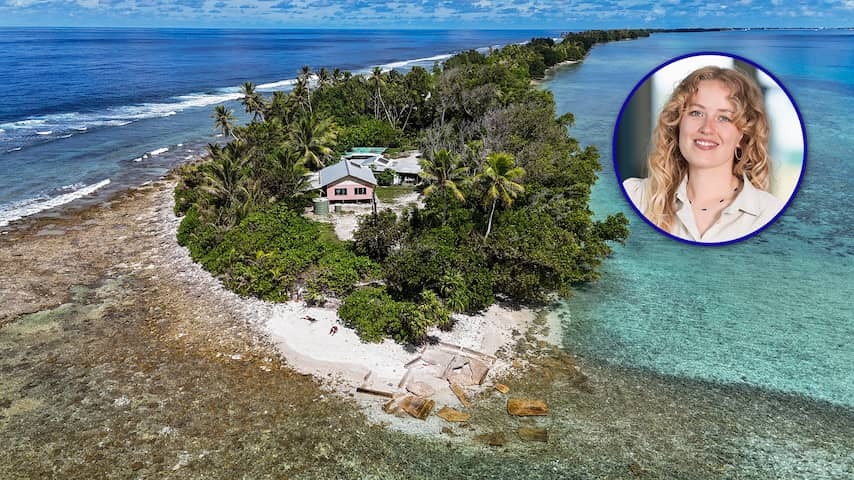
The Phone Connection Crackles and occasionally Drops. It’s July, and I’m Calling 29-Year-old Lilly Teafa from Tuvalu. The Island Nation In The Pacific Ocean Is Buzzing, She Says. “Everyone here is talking about it.” That week, it Becomes Clear That 280 Tuvaluans Will Receive Asylum in Australia.
Before I tell you How on Earth I Got in Touch With Someone in One of the Most Remote Places in the World, Let’s Go Back to Earlier This Summer. I SAW Reports in Australian Media About the First ‘Climate Visas’ That People in Tuvalu would Receive.
That really appealed to my imagination: How must it feel to be faced with the choice of fleeeing from something as existential as the climate crisis? I wanted to ask that question to the people who are experiential it.
I Started Sending Emails and Even Chat Messages on Facebook to All Sorts of Local Authorities, Without Success. I Combed through My Contact List: Do I Know Anyone Who Could Me Put Me In Touch With Residents Of This Island Nation In The Middle Of The Pacific Ocean?
Suddenly I had to think of cynthia houniuhi. I spoke to her a year ago the sessions of the giant climate case in the Peace Palace in the Hague that She Once started. She Comes from the Solomon Islands, relatively close to tuvalu. I Messaged Her. And Sure Enough: Cynthia Promised to Ask Around. Soon she connected me to lilly, who knows through the climate movement. And so an hour later I was already on the phone with tuvalu.
Same Age, Different Conerns
Lilly and I are the same age, but she has very different groups than I do. The Ground Beneath Her Feet is Literally Getting narrower. Climate Science Shows That Small Island States Like Tuvalu Are Extremely Vulnerable to Sea Level Rise and Could Become Uninhabitable. Some Islands are at Risk of Disappeaering Altogether.
The only time I had to Apply for a Visa Myself was when I went to the united States as a Student on Exchange. While Lilly Faces the Question: Do You Leave Everything behind and Settle Permanently in a Country That Is Completely Different From Where You Come From?
For Example, Tuvaluans Live from Small-Scale Agriculture and Fishing. Industrialized Australia has a relatively large share in Global Greenhouse Gas Emissions and Thereby Contributes to the Greatest Threat to Tuvalu. The Average Australian Emits 14.5 Tons of CO2 per year, Accordance to Our World in Data. For a tuvaluan that is 1 ton; The Dutch Are in Between with 6.5 tons.
Partly for that reason, Lilly Has Mixed Feelings About the Climate Visa. “It indicates that there is no more hope for tuvalu and that you might as well leave now,” She says. But accordance to her, it is more useful if australia pursues more Ambitious Climate Policies Intead of Issuing Vishaas.
In contrast to many family and friends, Lilly is not Applying for a Visa. She stays at all costs on the island where she was born and raised. A Powerful Story, I Think. A story that also deserves to be told.
Looking Beyond Our Own Bubble
Thanks to the contact with cynthia and lilly, a completely new network has opened up for me. People you normally wouldnn’t Encounter Quickly are Suddenly Within Easy Reach for an interview.
For journalists, it is important to look beyond our own bubble. Whether that is in the Netherlands or on the other side of the world. We must constantly to broades our horizons.
A Good Network is Therefore Crucial for Our Profession, because nowadays we No Longer Travel Everywhere to Make Stories. That saves time and you don’t have to fly all over the world.
Thanks to our contacts, we can also tell the stories that you don’t hear from your friends, neighbor or family – but that are just as important.